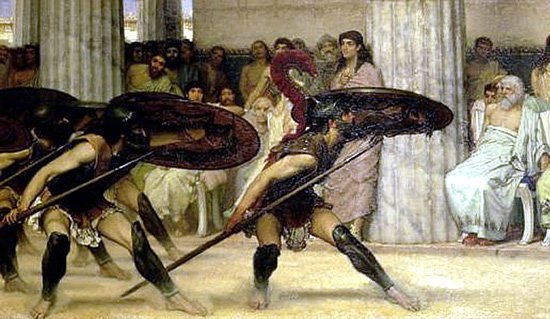Chronos, Kairos and Aion are the three deities of time, events and epic destinies. Here is the multi-religious and multicultural calendar!
Find us on our website Mythology and Legend, on Facebook and on instagram !

The schedule in brief from D-2 to D+5
- October 1, 2024, : Fides Publica
The complete interactive calendar
Holidays of the month
October 1, 2024 (1 event)
October 1, 2024

On this day, the Romans celebrated Fides Publica. The goddess of trust and good faith, the foundation of all human relationships. The European symbols of confidence and white dough come from this goddess. #mythology #myth #legend #calendar #October 1st #Fides #Rome
October 11, 2024 (1 event)
October 11, 2024

On this day, the Romans celebrated Meditrinalia, the grape harvest festival in honor of one of the daughters of the god of medicine. the new wine was drunk for curative purposes, with the blessing of the goddess. #mythology #myth #legend #calendar #October 11 #rome #meditrinalia
October 12, 2024 (2 events)
October 12, 2024

On this day, the Romans celebrate Augustalia in honor of the first emperor Augustus. They were established in conjunction with an altar at Fortuna Redux to mark the return of Augustus from Asia Minor to Rome in 19 BCE. #mythology #myth #legend #calendar #October 12 #rome #Augustalia
–
October 12, 2024
On this day, the Aztecs began the month of Tepeilhuitl and the Mountain Festival. The mountains Popocatepetl, Iztacihuatl (close story of Odysseus) and Tlaloc were revered. #mythology #myth #legend #calendar #6November #Tepeilhuitl #Aztec
October 13, 2024 (1 event)
October 13, 2024

On this day, the Romans celebrated Fontinalia in honor of the god of wells and autumn Fontus. Throughout the city, fountains and wellheads were decorated with garlands. #mythology #myth #legend #calendar #October 13 #fontus #rome
October 15, 2024 (1 event)
October 15, 2024

Today, the Asatrus celebrate Vetrnætr, literally on winter nights. According to Zoega, vetr-nætr referred to the three days that begin the winter season. Sacrifices were organized on this occasion. #mythology #myth #legend #calendar #October 15 #winternight #asatru
October 19, 2024 (1 event)
October 19, 2024

On this day, the Romans celebrated the Armilustrium, in honor of Mars. On this day, the weapons of the soldiers were ritually purified and stored for the winter. #mythology #myth #legend #calendar #19October #rome #armilustrium
October 31, 2024 (3 events)
October 31, 2024

Today, the North Slavic peoples celebrate Dziady. This communion of the living with the dead takes place twice a year. The rituals have been Christianized to become All Saints Day. #mythology #myth #legend #calendar #1st May #31October #dziady
October 31, 2024

Today, the Manx celebrate Hop-tu-naa. This variation of Samhaim (Halloween) has many rituals unique to the Isle of Man. #mythology #myth #legend #calendar #31October #hoptunaa #IledeMan
October 31, 2024

Today, the Asatrus celebrate Vetrnaetr (winter nights). These three days of celebrations with sacrifice and banquet mark the end of summer and the beginning of Scandinavian winter. It also marks the start of the new year. #mythology #myth #legend #calendar #vetrnaetr #October 31
Multicultural and multi-religious almanac
An almanac is a calendar showing the main dates of the calendar, the religious holidays, bearing ephemerides such as the phases of the moon or the duration of the days (lunar and solar calendars).
A calendar is a system for marking dates according to time. Such a system was invented by men to divide and organize time over long periods. The observation of the periodic phenomena of the environment in which they lived — such as the daily movement of the shadow, the return of the seasons or the lunar cycle — served as the first references for organizing the agricultural, social and religious life of societies.
The calendar used today in most of the world is the Gregorian calendar. In everyday language, an ephemeris designates what happens daily; the ephemeris of the day is the list of the significant events of this day.